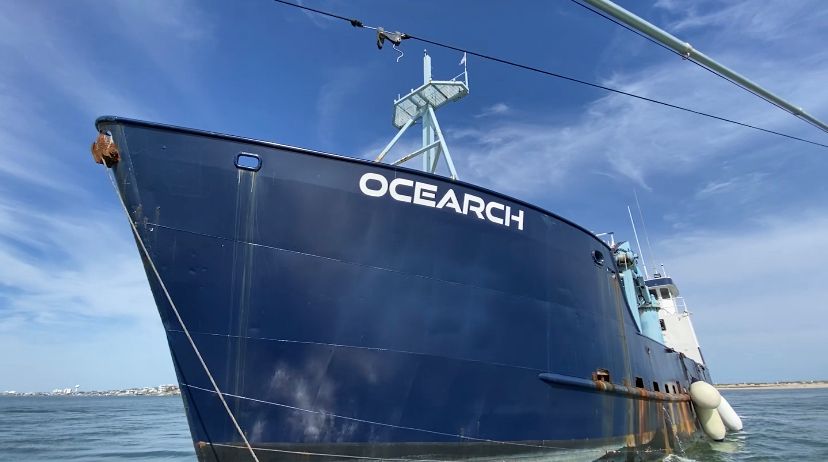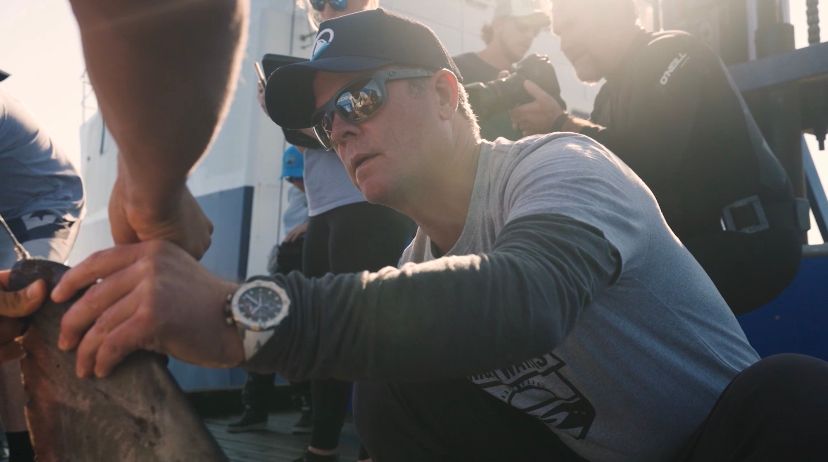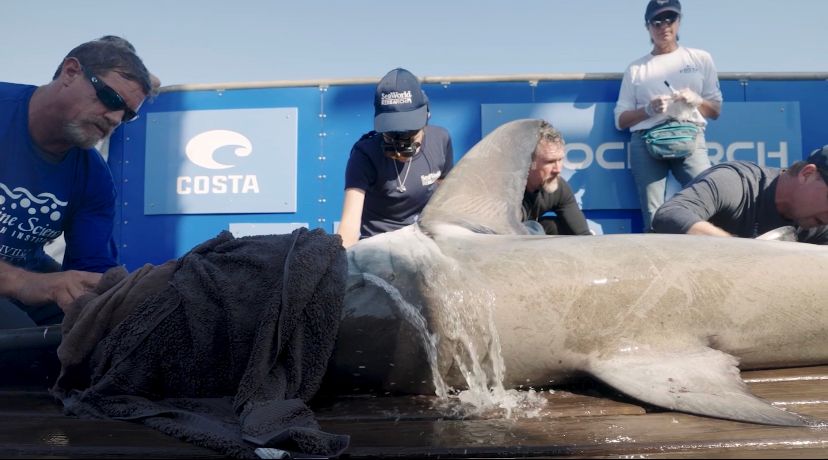WILMINGTON, N.C. — If you’ve been using OCEARCH to track sharks off our North Carolina coast, you may have noticed that they’re collecting around the Outer Banks.
Soon, they’ll migrate north for the summer, but before they go, the team at OCEARCH is hoping to learn a thing or two from them. Team members are embarking on Expedition Northbound, a journey that they hope will allow scientists to fully understand the lift of a great white shark for the first time in our history.
We know so little about our oceans and the creatures that inhabit them, including one of the most important creatures of all, the great white shark. The nonprofit research organization OCEARCH, however, is changing that.

“Well, we started tagging white sharks back in 2007 in the Pacific,” said Chris Fischer, the founder of OCEARCH. “And we’ve been around the world doing that for the past 44 expeditions, this is our 45th.”
Fischer says that so far, they’ve collected research from 88 white sharks and have been able to understand these great animals like never before. Now, they’re hoping to tag and collect data from 12 more sharks, allowing them to connect the final pieces of the puzzle that is the life of the white shark.

“We understand birthing, we understand what they’re eating, where they’re eating it, what they’re doing. The life of the white shark is no longer a mystery off the east coast of the United States,” Fischer said. “It’s just this one little last piece of the puzzle around mating, that’s what we’re really drilling down on right now.”
Prior research shows that this time of year, these sharks gather in the Outer Banks, taking advantage of the ample food supply before heading north to their summer feeding grounds. This provides OCEARCH researchers a great opportunity to tag their remaining goal of 12 white sharks and get the last bit of data they need.
“The ultimate goal here would be to sample these larger, mature animals right now to understand what they’re doing here to see if there’s any sort of indication that they’re mating,” Fischer said. “And if they are, and it builds on the data that we have from previous animals, you know, that would be the first time in history a white shark mating area is documented and proven, so that would be an enormously big deal.”

In addition to mating studies, OCEARCH is hoping to continue collecting data on the general health of these sharks, movement patterns, population genetics, nutritional information and more. Incredibly, the tagging process and data collection only takes 15-20 minutes.
“Captain Brett and the fishing team have designed this kind of cradle or corral around it (a forklift) so that we can bring the animals in and lift them out of the water. Once we do that then the scientists go to work, and they’re collecting samples for 25 different research projects for 49 scientists from two dozen different research institutions,” Fischer said. “They’re leveraging the latest tags to put on the animal, doing ultrasounds, getting blood samples and semen samples, the kinds of samples that were impossible to get before.”

Fischer says that the more we understand these sharks, the better off we’ll be, and the closer we are to returning our oceans to abundance. If sharks are thriving, then there are lots of fish for us — and if there’s not, then we’re struggling. That’s why Fischer and the rest of the OCEARCH team do what they do, they want to make the world and our oceans a better place for future generations.
“We’re solving the puzzle of the life of the balance keeper of our entire eastern seaboard, and if we can manage that animal, we can then manage the system, and our kids will see an ocean full of fish,” Fischer said. “I mean, that’s why we’re here, to make sure out kids see an ocean full of fish.”
Expedition Northbound is expected to conclude May 4. OCEARCH is planning another similar expedition called Expedition Southbound when the white sharks make their southern migration for the winter. OCEARCH may do a second northbound trip next year if needed to complete the study.
If you would like to learn more about OCEARCH, its research and past expeditions, click here.
If you would like to use the OCEARCH shark tracker to keep up with the sharks off our coast, lick here.



